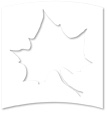IIIA. Quantitative Literacy
Approved 7-2-2019. Effective fall 2020.
Learning Objectives
- Explain information presented in mathematical forms (e.g., equations, graphs, diagrams, tables, words, geometric figures), including appropriate critique of the information or conclusions provided.
- Convert relevant quantitative information into various mathematical forms (e.g., equations, graphs, diagrams, tables, words, geometric figures) and carry out mathematical procedures and processes fluently and accurately.
- Make judgments and draw appropriate conclusions based on a quantitative analysis, while recognizing and describing the limits of this analysis.
- Make and evaluate important assumptions in given situations in estimation, modeling, and data analysis.
- Communicate the results of a quantitative argument, citing the representation of the math problem, explanation of the solution, and the interpretation of the solution.
CLO
Skill and Applied Learning Requirements
- Explicitly demonstrate how the curriculum will develop critical thinking skills.
- Explicitly demonstrate how the curriculum will develop information literacy skills
- Include a graded writing component, which whenever possible is developmental.
Category Policies
- At least one written assignment is given that is appropriate to be evaluated with the AAC&U Quantitative Literacy VALUE Rubric; that is, an assignment which “gives students substantive, contextualized experience in using such skills as analyzing quantitative information, representing quantitative information in appropriate forms, completing calculations to answer meaningful questions, making judgments based on quantitative data and communicating the results of that work for various purposes and audiences.”
- Each class is limited to 30 students and there is an expectation that students will submit graded written work throughout the course.
- A prerequisite for the course must include high school Core 40 mathematics competencies (e.g., the course builds on high school Algebra I, Geometry, and Algebra II).
Foundational Studies Approved Courses by Category
Contact
Professor Linda S. Maule
207 Normal Hall
Indiana State University
Phone: (812) 237-3940
Fax: (812) 237-3676
Email:
Linda.Maule@indstate.edu
Office Hours:
Monday-Friday
8:00 AM - 4:30 PM

